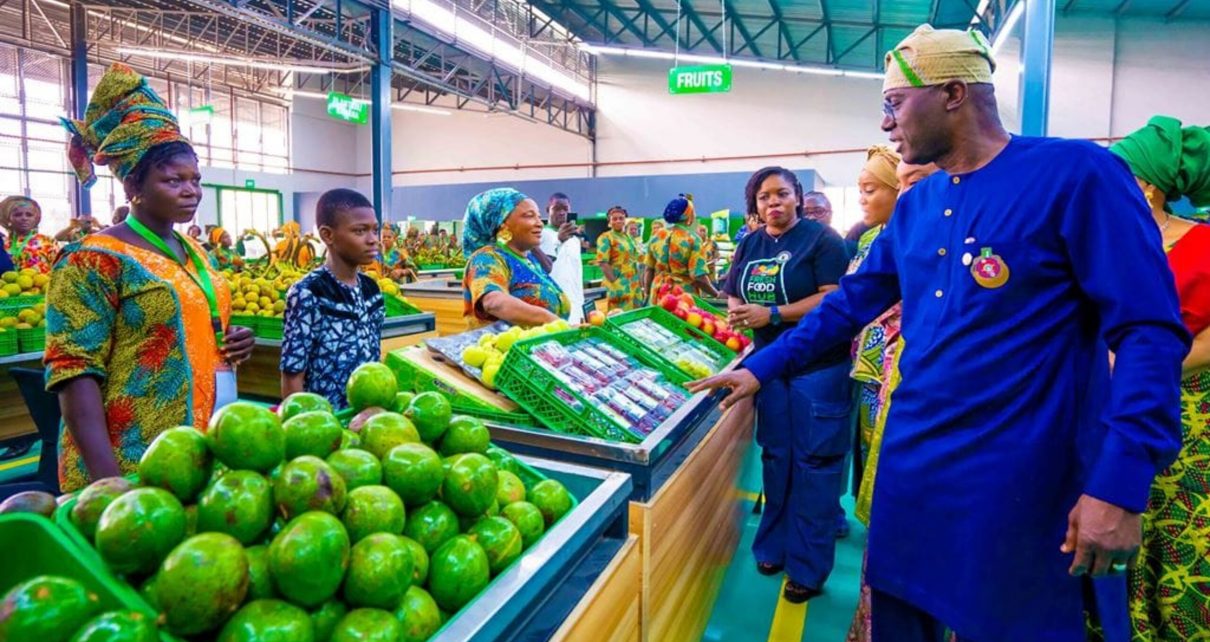By Nkanu Egbe
Nigeria produces enough food to feed itself, yet millions go hungry every day. The paradox is stark: up to 40–50 percent of the nation’s agricultural output is lost before it reaches the consumer’s table. For tubers, fruits, and vegetables, the losses climb even higher, sometimes reaching 60 percent. The result is a staggering ₦3.5 trillion drain on the economy annually, an amount that eclipses the federal agriculture budget for several years combined.
The reasons are well known: poor storage, weak rural infrastructure, bad roads, lack of refrigerated transport, and fragmented markets. It is not so much a problem of producing enough food, but of saving what is produced.
Lagos at the Centre of the Crisis
Though Lagos is not Nigeria’s food basket, it is certainly the country’s largest food market and consumer hub, home to over 22 million people. Mile 12, Oyingbo, Iddo, and countless other markets serve as funnels for the produce flowing in daily from Benue, Kano, Oyo, and beyond. The irony is that a large portion of what rots in Nigeria rots in Lagos, where poor storage and handling practices mean fresh food spoils within hours.
Lagos lacks farmland to grow its own food at scale, but it controls the levers of storage, logistics, and consumption. If Nigeria is to cut its food losses, Lagos must lead.
The Land Constraint Dilemma
The city’s density poses a major question: how can Lagos, already pressed for space, find room to store food properly? The answer lies in thinking vertically and modularly. Multi-storey cold storage hubs, containerised cold rooms in markets, and distributed “mini-hubs” in local government areas can solve the land problem. Lagos does not need sprawling silos—it needs compact, smart storage linked to efficient distribution.
Glimmers of a Response
The Lagos State Government has begun to move. Two recent initiatives stand out:
- The ₦500 billion Produce for Lagos Offtake Fund – launched to purchase food directly from farmers, cutting out wasteful middlemen chains and stabilising supply into Lagos.
- The Central Food Systems and Logistics Hub in Epe – under construction on 400 hectares, this facility is billed as the largest of its kind in Sub-Saharan Africa. With cold and dry storage, an abattoir, and transport links by road and water, it promises to process over 1.5 million metric tonnes of food annually and create five million jobs.
These are ambitious projects. If executed well, they could change the way Lagos feeds itself and set a template for the rest of Nigeria.
What Still Needs to Be Done
Yet, Lagos cannot rest on these projects alone. To make a dent in food waste, the state must:
- Scale up cold chain technology by partnering with startups like ColdHubs and Koolboks to deploy solar-powered units in every major market.
- Redevelop open markets with storage, waste recycling, and sanitation built in, not added as an afterthought.
- Invest in waste-to-value systems, converting spoiled food into compost, biogas, or animal feed.
- Leverage technology by digitalising food trading, connecting farmers in distant states with Lagos traders in real time, cutting delays that cause spoilage.
- Foster cooperatives and financing, so that small traders can access shared storage and transport facilities.
The Bigger Picture
The Lagos example underscores a national truth: Nigeria does not have a production problem, it has a preservation problem. If the country could save just half of what it currently wastes, it could feed millions more and release billions of naira for investment in other sectors.
As Nigeria grapples with hunger and rising food prices, Lagos has both the burden and the opportunity to lead the way. If its off-take fund and logistics hub succeed, the lessons will echo far beyond the state’s borders. But failure will mean that the largest food market in Africa’s largest economy continues to preside over waste on a monumental scale.
Final Thoughts
Lagos may not be able to grow the food Nigeria needs, but it can help save the food Nigeria already grows. In doing so, it can transform itself from the nation’s biggest consumer of wasted produce into the pioneer of smarter storage, logistics, and distribution.
–Nkanu Egbe, journalist and economist, is the Publisher/Editor, Lagos Metropolitan


